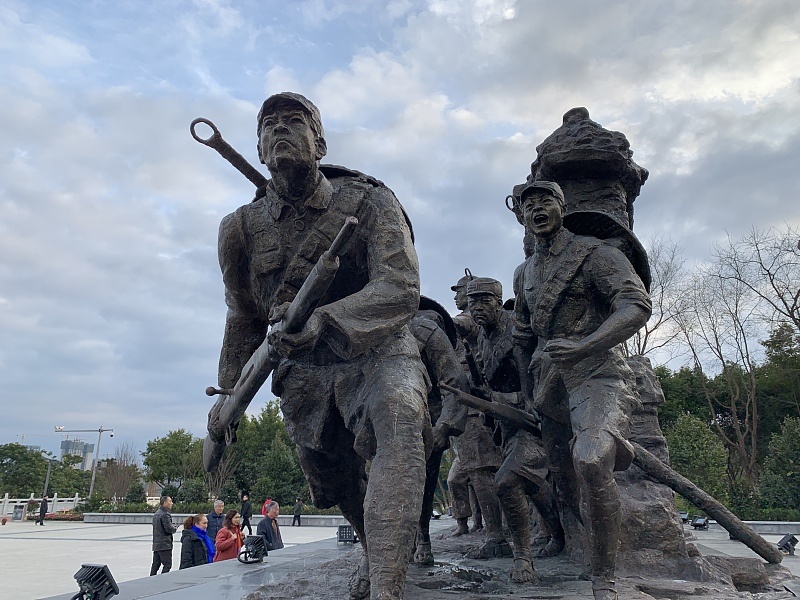
A statue themed "Battle of Hengyang" at the site of a fierce fighting during the War of Resistance Against Japanese Aggression is seen in Hengyang, Central China's Hunan province, on July 6, 2014. (Photo: Asianewsphoto)
The 75th anniversary of victory in the Anti-Fascist War provides the world with an opportunity to not only cherish that achievement, but also an appropriate moment to reflect on how to put lasting peace, universal security and common prosperity within the reach of the generations to come, President Xi Jinping said in a message to his Russian counterpart on Thursday.
With Washington, the main architect of the postwar system, now taking a wrecking ball to it in a bid to rebuild it in a way that will "make America great again", it was a timely call to better safeguard international justice and uphold multilateralism.
The international community needs to remain vigilant and stand firmly together to ensure that in its megalomania Washington does not become the gravedigger for the fairer and more inclusive rules-based global governance that is beginning to take shape.
Amid the uncertainties created by the novel coronavirus, Washington — which rejects the notion that there are any lessons to be drawn from history, as it is firmly of the belief that history truly did come to end with the ascendancy of the United States — has stepped up its efforts to retain the commanding heights of the global order by trying to disruptively rebuild that order in its favor.
But history, as the progress of human society to higher levels of rationality and freedom, has not come to end just because Washington is bound by the strictures of an outdated Cold War mentality and zero-sum mindset. Or because it has a huge stockpile of nuclear weapons at its beck and call, most of which the US accumulated after the war in which it became the first and only country to use such weapons of mass destruction.
The US president's National Security Strategy declared, the US should "rethink the failed policies of the past two decades — policies based on the assumption that engagement with rivals and their inclusion in international institutions and global commerce would turn them into benign actors and trustworthy partners".
However, it is the US that has revealed itself to be a malign actor and untrustworthy partner.
A leviathan the US may be thanks to the preeminence of its military, economy, technology and finance, but throwing its weight around is destructive of the ecology that supports it and will not serve its interests over the long term.
The victory against fascist aggression and the building of the international order based on multilateralism was a watershed moment in the contemporary era. But the rise of unilateralism, protectionism and populism have highlighted what Xi has called the "four deficits" in global affairs, namely those of peace, development, governance and trust.
The world is at a critical crossroad, the choices made today will directly decide whether or not those deficits are reduced and determine what is commemorated in the future, whether for better or for worse.


